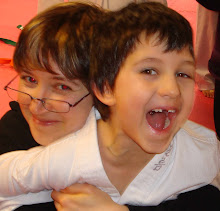Thanks to an English course I'm taking, I was forced to read this book, though I've been putting it off. This weekend I realized that I would have to pick it up, given that I need to write a paper on it that's due on Monday. Astute readers of this blog will have noticed that it's been on my shelf for quite some time now. (They will also have noticed that I have been struggling with a Michael Ondaatje book for weeks; it's not surprising that was another book I was assigned for the course. I very much hope to finish that one soon...)
Though the English course instructors seem to have an uncanny ability to choose fiction that I find uninteresting or downright awful, I'm happy to say that this was the first book that I actually liked from the assigned reading list. Though I prefer novels to stories, this book was a nice change of pace. Munro's stories are vivid and don't tend to be morbidly depressing, which is a tendency that has often annoyed me about short stories. This book is a series of bright vignettes, each one quite distinctive, and mainly told in the first person by women of a variety of ages. There's a nice balance of coming-of-age stories and stories about elderly women looking back on their lives. There's one story, "Walking on Water," that has a male protagonist, and I think it's the one I enjoyed the most. Mr. Lougheed, an elderly man struggling to understand modern young people whose behaviour and values are so different from those of his own youth, turns to a neighbor, Eugene, for insight. Eugene is a man in his twenties who has read a few too many philosophy and occult books, and seems to spend most of his time meditating, but he makes time to talk with Mr. Lougheed and help him see things from another point of view.
I don't feel motivated to say much more about this book; I spent all day plowing through it, and really wanted to watch TV instead. Guess what I'm going to do after I publish this post?
Subscribe to:
Post Comments (Atom)

No comments:
Post a Comment